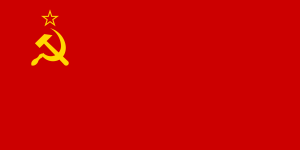The Soviet Union, officially the Union of Soviet Socialist Republics (USSR), was a socialist state in Eurasia from 1922-1991 that synthesized Marxism-Leninism, defeated fascism, and ultimately fell to revisionism in 1956. Established by the Communist Party of the Soviet Union (CPSU) in the aftermath of the Russian Civil War, the USSR was led by Vladimir Lenin until his death in 1924. This period set a precedent for Leninism as a tradition and model for how socialist states should function. Joseph Stalin came to power after Lenin and began a process of mass industrialization, which was pivotal for the USSR's victory in the Great Patriotic War against fascism in 1941-1945. It was under Stalin that Marxism-Leninism completed its synthesization with Russian civilization and tradition. During Stalin's era, religion was reconciled with communism, and the precedent of socialist patriotism was reaffirmed. Stalin's death in 1953 led to a usurpaton of the country by Nikita Khrushchev, who altered the class character of the CPSU and the Soviet state by replacing the dictatorship of the proletariat for a social-democratic All-People's State in 1956.Cite error: Closing </ref> missing for <ref> tag[1][2] Vladimir Lenin has a 56% approval rating in Russia today.[3] Even higher, Joseph Stalin has a 70% approval rating in modern Russia.[4] Stalin's approval in Georgia and Armenia also remains relatively high, at 45% and 38% respectively.[5]
